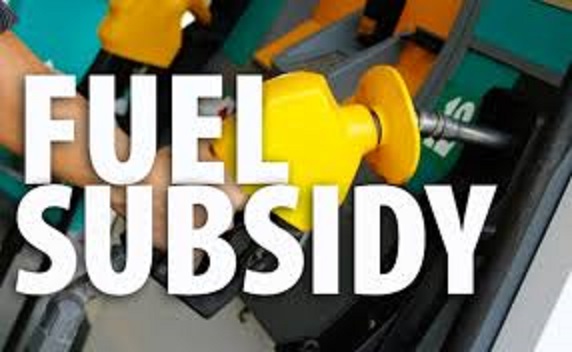Mr Tunji Oyebanji, Managing Director 11 Plc, says the huge amount being spent on fuel subsidy by the Federal Government is preventing investments in critical areas of the economy and worsening the unemployment situation in the country.
Oyebanji said this at the yearly programme of the Institute of Change Management (ICM) tagged, “Impact of Insecurity and Oil Subsidy on Nigeria’s Economy,” in Lagos on Monday.
According to him, by extension, promising Nigerian youths are affected more as many of them have no jobs.
The managing director said subsidy payment remained one of the major factors fueling the high level of unemployment in the country.
He noted that the situation made the nation’s unemployed youths to engage in crimes.
Oyebanji said the funds expended on subsidy could have been channelled into productive sectors that would generate employment opportunities for the nation’s teeming unemployed youths.
“Government spent N4 trillion on subsidy in 2022, N1.573 trillion in 2021, N440 billion in 2020, N350 billion in 2019 and N722.3 billion in 2018 respectively,” he said.
He added that the 2022 budget stood at N17.126 trillion of which subsidy payment was expected to gulp N4 trillion.
Oyebanji said the amount government paid on subsidy was 36 times more than what was allocated to education and 33 times more than the allocation to transportation.
He said the high subsidy payment had increased borrowing, caused socio-economic collapse, constrained budget and led to the decline of the external reserves.
On the current fuel scarcity, Oyebanji said operators in the oil and gas industry had always advocated a complete deregulation of the industry, to create a level playing field for many suppliers of petroleum products into the country.
According to him, any market where there is a single supplier of a commodity is bound to experience scarcity.
He said full deregulation of the downstream sector was inevitable as the money that would have been used to grow the economy was channelled to subsidy.
“Deregulation is the big elephant in the room. We have consistently advocated that we need to be fully deregulated.
“Government in its wisdom decided to postpone that for some months, but we have no choice because today we are bleeding.
“The subsidy money is taking away money that we should have used for investments in growing the economy and creating jobs.
“So, we really need to deal with it decisively once and for all,” he said.
He explained that deregulation would boost local and international investment in the industry, ultimately creating job opportunities for millions of Nigerians.
“Today there is only one supplier in the industry which is Nigerian National Petroleum Company Ltd. (NNPCL). This is not an ideal situation.
“Any market where there is a single supplier, most likely we will find hiccups along the line.
“So, the fundamental solution or the basic solution to the problem is to free up the market and allow people to be involved in the potential distribution of the product,” he said.
He, however, stated that all hands must be on the deck to normalise the situation, which he hoped would be addressed in no distant time.
“The quantity of petroleum available is one thing, while the other thing is where is the fuel?
“If you have a lot of petroleum product, but it is on the high seas and not in the tanks or depots and in the tanks in the petrol stations, then you will have a problem.
“So, I think the issue is not so much the quantity of product that may be available offshore, but that it is rarely available in petrol stations.
“So, where we are all working hard now is on the logistics to make it easier and quicker for products to get into our tanks or the depots and be delivered to petrol stations,” Oyebanji said.
According to him, sometimes when the figure of available stock is mentioned, it is often in reference to stock on the high seas.
“So, everybody is now working hard to make sure that what is on the high seas, is delivered to the tanks and distributed to service stations.
“But of course, once there is scarcity, it takes double the effort to stop those queues because you have to distribute at a faster rate to make sure the queues disappear.
“I am sure with the efforts going on with the NNPC, MOMAN and everybody working together, the queues will soon be a thing of the past,” he added.




